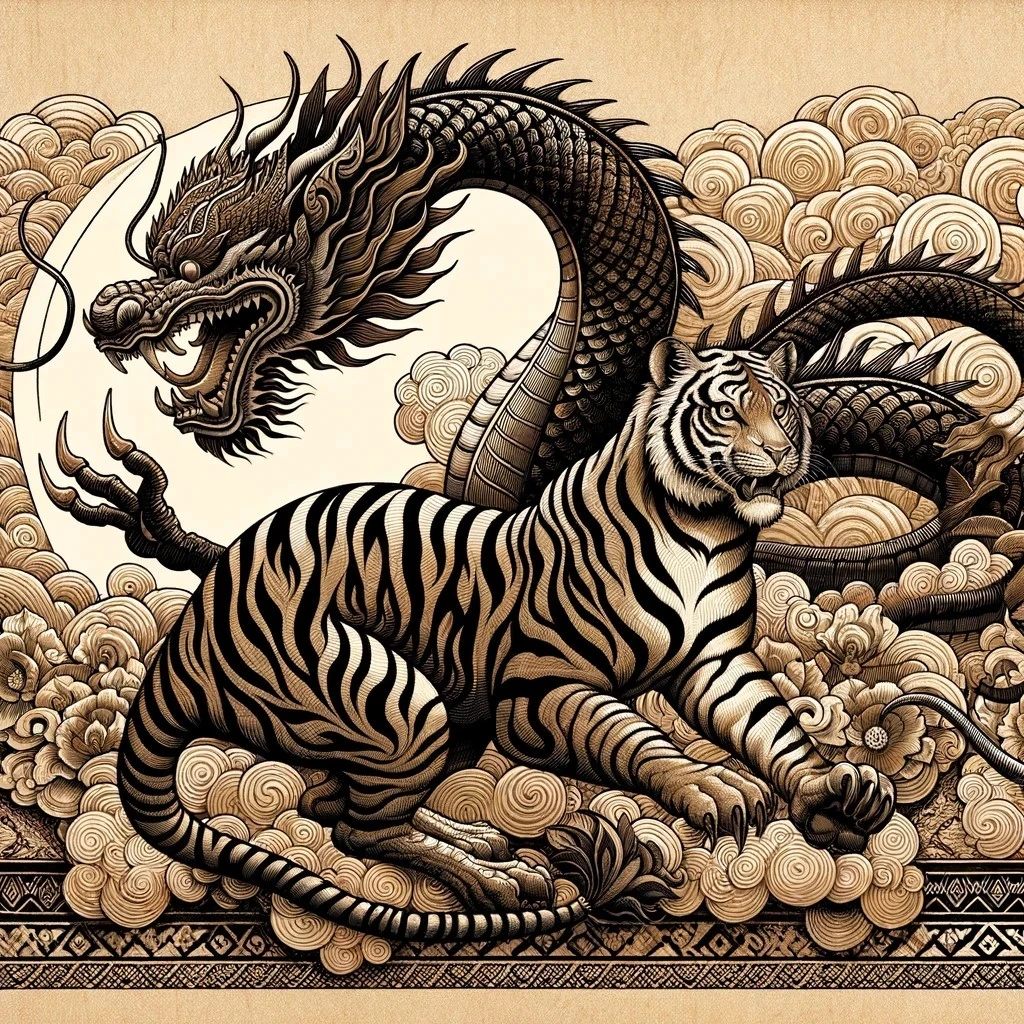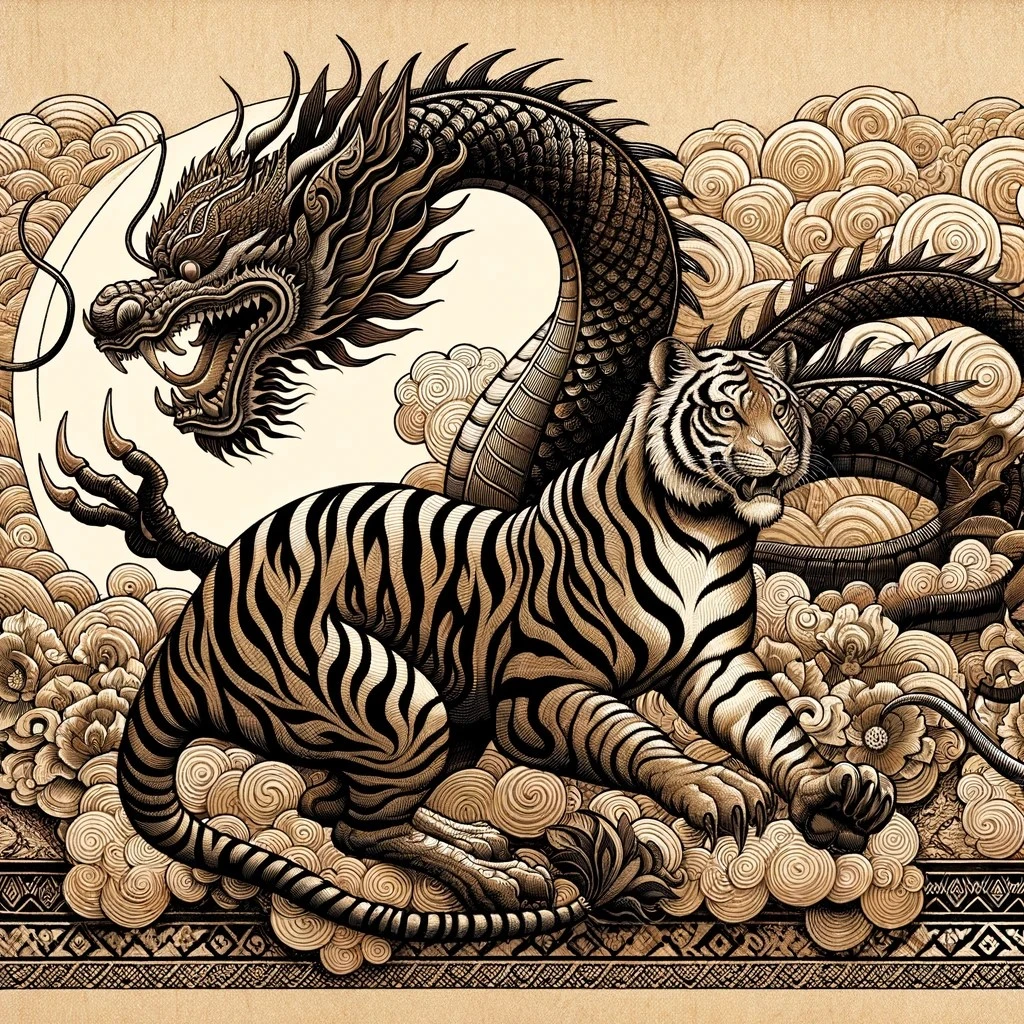Dragon Tiger: The game of a Profound and Ancient History
Dragon Tiger Game: A Simplified Version of Pai Gow
The exact origin of the Dragon Tiger game is not well-documented, and there isn't a specific individual credited with its invention. The game's roots are believed to be in the Chinese gambling game of Pai Gow. Dragon Tiger is considered a simplified version of Pai Gow, which involves splitting a hand of seven cards into two hands with the goal of creating one with the highest possible value and the other with the lowest.
Dragon Tiger Real Cash Game gained popularity in Cambodia and other parts of Southeast Asia before spreading to other regions, including Europe and North America. The game's development and evolution likely involved contributions from various individuals and communities within the broader gambling culture. The lack of a single credited inventor is common in traditional casino games, as many of them have evolved over time through cultural influences and regional variations.
Dragon Tiger is a popular casino game that originated in Cambodia and has gained widespread popularity across Asia, Europe, and North America. It is a simple card game with two betting options: Players bet on which hand will have the higher card value, and a tie results in a push.

The game is believed to have roots in the Chinese gambling game of Pai Gow but is a simplified version, making it easier to learn and play. Dragon Tiger has become known for its social and interactive nature, offering a more casual and accessible gambling experience compared to other casino games.
The cultural significance of the Dragon Tiger in Asia is tied to Chinese symbolism, with the dragon representing power and auspiciousness, and the tiger symbolizing strength and ferocity. The game is often played in groups, providing a fun and exciting way for friends and family to socialize.
In recent years, the popularity of Dragon Tiger has expanded globally, thanks to its simplicity and fast pace. It has become a favored option for both casual and experienced gamblers. The game's transition to online platforms has further increased its accessibility, allowing players to enjoy it at any time via smartphones and other devices.
The game involves a dealer dealing pre-shuffled decks of cards to the Dragon and Tiger sides. Players place bets on the side they believe will have the higher card value. The game follows a straightforward card order, with the ace having the lowest value and the king possessing the highest rank value.
Dragon Tiger game development has seen significant growth due to the game's popularity. Many casinos worldwide are involved in this industry, and the demand for the game remains high. As technology advances, online versions of Dragon Tiger contribute to the game's widespread appeal and accessibility.
Dragon Tiger Game Rules:

- Objective:
The main goal of Dragon Tiger is to correctly predict which side, Dragon or Tiger, will have the higher card value. - Card Values:
The Ace has the lowest value, and the King has the highest value.
Just compare the numerical values of the cards; there's no need to consider the suits. - Betting:
Players place their bets on either the Dragon side, the Tiger side, or a Tie (both sides having the same card value).
Before the cards are dealt, players place their bets on the chosen outcome. - Dealing Cards:
The dealer uses 6 to 8 pre-shuffled decks of cards.
*One card is dealt to the Dragon side, and one card is dealt to the Tiger side. - Determining the Winner:
The side with the card with the higher value wins.
If the Dragon side has a higher card, Dragon bets win.
If the Tiger side has a higher card, Tiger bets win.
In the case of a Tie, bets on the Tie win. - Payouts:
Winning bets on Dragon or Tiger are typically paid 1:1.
Winning bets on Tie are paid higher, often 8:1 or 11:1, but this can vary. - Card Order:
Card order from low to high: A, 2, 3, 4, 5, 6, 7, 8, 9, 10, J, Q, K. - Additional Bets:
Some variations of Dragon Tiger may offer additional side bets or features, such as Small or Big bets based on the number of cards dealt. - Game Continuation:
After determining the winner and settling bets, a new round begins with players placing their bets again. - Social and Interactive Aspect:
Dragon Tiger is often played in a social setting, and its simplicity makes it a popular choice for groups of friends or family.
What is the Chance of Winning Dragon Tiger Game?

The chance of winning in Dragon Tiger Real Cash Game depends on the specific bets placed, and the probabilities are outlined based on the game's rules and payout structure. Here's a breakdown:
Main Dragon Tiger Bets:
- Dragon/Tiger: RTP (Return to Player) of 96.27%.
- Tie: RTP of 89.64%.
- Suited Tie: RTP of 86.02%.
Payouts for Main Bets:
- Dragon or Tiger: Payout of 1:1
- Tie: Payout of 11:1 8:1
- Suited Tie: Payout of 50:1
Other Side Bets:
Big or Small, Odd or Even, Red or Black, One Red & One
- Black: Payout of 1:1
- Suit: Payout of 3:1
- Two Red or Two Black: Payout of 3:1
Dragon Tiger Strategies

Optimal Dragon Tiger Strategies involve focusing on bets with higher RTP, primarily Dragon or Tiger.
Trends on scorecards (such as Bead Road and Big Road) can provide insights into the statistics of the shoe.
If a losing bet occurs, doubling the wager on the next round may compensate for losses due to the even money payout.
This strategy resembles the Martingale betting strategy, but caution is advised due to the potential for rapid bankroll depletion.
Overall Probability:
Out of 86,320 hand combinations, 39,936 resulted in a win for Tiger, 39,936 in a win for Dragon, and 6,448 in a tie.
It's essential to note that while strategies based on probability can be applied, gambling inherently involves risk, and there are no guaranteed outcomes. Players should approach Dragon Tiger or any casino game responsibly and be aware of the potential for both wins and losses. The chance of winning depends on factors like luck, strategy, and the specific bets placed during gameplay.
Conclusion for Dragon Tiger Game:
In conclusion, Dragon Tiger stands as a captivating casino game with a rich & mysterious history. Despite its uncertain origins, the game has flourished, becoming a beloved pastime in Cambodia and Southeast Asia before capturing the interest of players worldwide. Its evolution, likely shaped by diverse influences within the gambling culture, reflects the organic development common to traditional casino games.
龍虎鬥的全球熱度印證了其簡潔易用的特性,無論新手或經驗豐富的玩家,都能享受引人入勝且節奏明快的體驗。這款遊戲的文化意義與中國象徵主義息息相關,常用於社交場合,為玩家增添了額外的樂趣。隨著龍虎鬥無縫過渡到線上平台,其便利性和廣泛吸引力持續提升,確保了它在充滿活力的賭場遊戲中佔據著不可或缺的地位。











